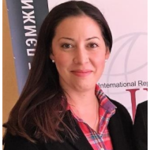“When Thailand held elections for its 500-member House of Representatives last Sunday, it was only the second national election since the return to military rule in 2014. An estimated 75 percent of eligible voters turned out to deliver a resounding victory to the political opposition and particularly for the Move Forward Party (MFP). The opposition victory is largely symbolic: The Thai military junta and monarchy have maintained a monopoly on power through the unelected Thai Senate, whose members are proposed by the junta and appointed by the king and whose decisions severely constrain those of the elected lower house. While the election results are certainly a blow to the ruling elite, it remains to be seen whether the sheer scale of the opposition’s victory will enable it to upend the status quo.
“The MFP is the newest incarnation of the Future Forward Party, which was dissolved by the Thai Constitutional Court in February 2020 after the 2019 elections—a verdict that sparked months of student-led street protests that were only suppressed by strict COVID-19 restrictions on public assembly. A crackdown on dissent followed: According to Thai Lawyers for Human Rights, between July 2020 and April 2023 at least 1,902 people—including 284 minors—were charged or prosecuted for political activism.
“For the 2023 elections, the MFP ran on a progressive platform of institutional reform and social policies. This made the party especially attractive to a younger generation of Thais dissatisfied with the old guard and the monarchy, as well as with working-class moderates seeking an end to corruption, oppression, and military-backed rule. More than 3 million first-time voters showed up to vote for the MFP and its fellow opposition party Pheu Thai. Altogether, the two opposition parties are projected to hold 293 out of 500 seats in the elected lower house, soundly defeating the current military-backed government of Gen. Prayuth Chan-ocha and the parties representing it.
“Public enthusiasm to participate was unprecedented. Thai civil society organizations played a key role in galvanizing voters and delivering a competitive election: An alliance of nongovernmental organizations mobilized a nationwide effort to independently verify the election results through systematic observation. Civil society and volunteer networks across all of Thailand’s 77 provinces participated in what may have been the country’s biggest crowdsourcing event to date. In a remarkable display of civic participation, some 27,500 photos of results forms were submitted to participating organizations to verify that results announced by Thailand’s Election Commission were credible. …”
Top